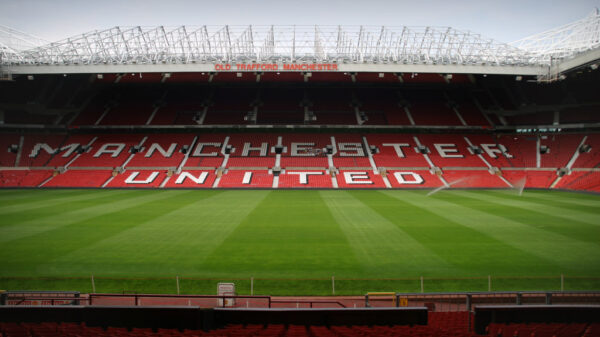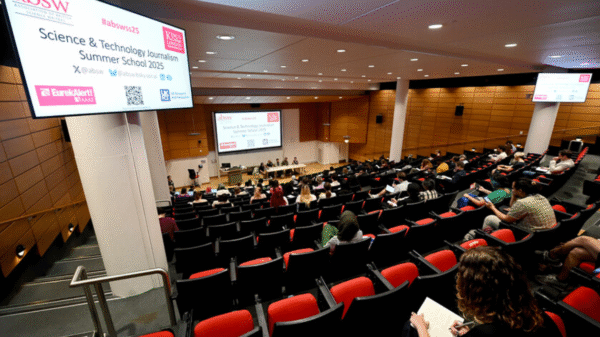Writer Daisy Redhead comments on the recent phenomenon that is the Saudi Pro League with a specific focus on how it reconstructs the technical and financial ecosystem of modern football.
In recent years, the Saudi football landscape has undergone significant changes, marking the emergence of a league that has been in existence and watched for decades. This shift is closely linked to the Saudi Vision Programme 2030, which not only recognises the financial potential of football but also the opportunity to integrate Saudi Arabia onto the global stage and enhance its public image.
The first notable instance of Saudi influence in European football surfaced in October 2021 when they acquired an 80% stake in Newcastle United. Since then, more independent investigations and interest have arisen, with increased awareness of their involvement in other clubs, such as Clearlake Capital’s investment in Chelsea with sponsorship ties to the PIF.
The Saudi Pro League offers a fresh investment opportunity that attracts players to the region, thanks to its lesser bureaucracy and a more lenient, rule-flexible approach. Players are drawn by the allure of sizeable salaries, tax benefits, and endorsement opportunities, making it a tempting proposition for athletes.
Richard Masters, the Premier League chief, believes that the Premier League’s transfer fee regulations are “robust” and that Saudi clubs deserve the same rights as others. He contends that their investments aim to boost the league’s profile and competitiveness while assuring the league’s integrity remains intact.
A senior league source echoed this sentiment talking to BBC Sport, asserting that “more secure and part of a long-term plan.” Local clubs have deep community roots, and football reigns supreme in the country. The focus is not just on signing star players but also on transforming the sport’s economy, attracting private-sector investment, and fostering the growth of clubs, companies, and brands. Simon Chadwick, a professor of Sport and Geopolitical Economy comments “We’re probably looking at the next five to ten years before determining whether there is a long-term sustainable and fundamental change,” It can potentially serve as a lever or a springboard for better times, promoting change from within.
Over the past year, a wave of top-tier players have joined the Saudi Pro League, sending shockwaves through European football. The likes of Ronaldo, Neymar, Benzema, Kanté, Firmino, Mané, Mahrez, and Henderson have all made this transition. One of the most poignant moments of the transfer window was PSG’s Kylian Mbappé turning down a $332 million offer to join Saudi’s Al-Hilal, highlighting that the league might still seem like somewhere to end your career while making a quick profit.
This investment in football is not merely a financial endeavour but aligns with the Saudi Vision Programme’s goal of diversifying the economy away from oil and promoting sustainability. Inclusive initiatives like women driving and opening up cities to tourism are laudable steps, also taken to appeal to Western audiences. Still, it’s essential to keep a watchful eye on the role of finances in these developments. It is reported that Crown Prince Mohammed bin Salman aims to reduce Saudi Arabia’s dependence on oil, which aligns with the global shift towards renewable energy sources. The hope is that investments in football can complement broader societal changes.
One concern is that only a few clubs might have the resources to succeed, potentially limiting competition. This can be addressed by increasing the number of clubs in the league and inviting foreign clubs to participate, emulating the structures seen in other football leagues worldwide.
In response, UEFA President Aleksander Ceferin views these investments as a misstep for Saudi Arabian football. He advocates for a focus on developing academies, coaching, and nurturing homegrown talent rather than purchasing ageing players. He emphasises that players aspire to compete in Europe’s top competitions.
The debate around this issue often revolves around the topic of sports-washing. It’s important to remember that these changes should not detract from the pressing human rights concerns. The entanglement of sports and politics in our daily lives makes it impossible to completely separate the two.
The transfer of Jordan Henderson, a vocal supporter of LGBTQIA+ rights, to Al-Ettifaq (who is not directly owned by the PIF), raises questions about the influence of financial incentives on individuals. The absence of his rainbow armband in a welcome video highlights the potential impact on both his reputation and the broader football landscape. In a recent international friendly, Englishman Jordan Henderson was booed by home fans – making front-page news across the nation.
These big headlines are preferable to Saudi as they can distract from serious human rights violations, and the names of Jamal Khashoggi, Loujain al-Hathloul, or the eighty-one executed in one day are not directly mentioned. Moreover, an anonymous Western diplomat in Riyadh confided in Al-Jazeera that such expenditures also served to divert attention away from human rights violations: “Most of the headlines are about Saudi attracting big players, not the long prison sentences handed down to activists.” It’s worth noting that some argue that these investments serve to divert attention from human rights abuses. Audiences must continue to invest interest in news on both the sporting and human rights aspects of this movement.
Ultimately the Saudi Pro League represents a fascinating new frontier in football investment. While it offers exciting opportunities, it also raises important questions about the intersection of sports, politics, and human rights, and the long-term sustainability of the changes. The world will be closely watching as this new chapter in football unfolds.










